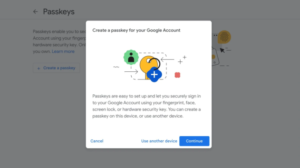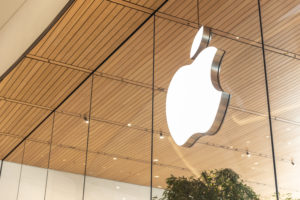With a passion for technology and its application in business, Darrell Riekena’s career has been a compelling mix of innovation, leadership, and transformation initiatives across a diverse range of companies. Discover how Darrell’s expertise in leveraging data and technology has enhanced Colonial’s operations and safety measures and gain valuable insights into his strategies for talent recruitment and development.
In this Deep Dive, Darrell shares his thoughts on the evolving technology landscape and offers advice for aspiring CIOs, all while revealing his favorite ways to unwind.
Walk us through your CIO path. How did you decide to pursue a career in technology, and how did you get to where you are now?
My degree was in business and I quickly developed a passion for technology. Initially, I considered pursuing a more technical path like computer science, but, I realized that I preferred leveraging technology for business outcomes and applying it in practical ways.
I began my journey as a developer, then transitioned to business analytics and eventually took on technology leadership roles. Throughout my career, I’ve worked at a diverse range of companies, from small specialty retail to large corporations in the big box and distribution supply chain sectors. These companies varied in size, with revenues ranging from $1B to $80B, and encompassed both privately held and publicly traded organizations. Each place I’ve worked was undergoing significant transformations to meet their evolving business needs.

Can you tell us about some of the initiatives you are proud of at Colonial Pipeline and some of the other major accomplishments as a CIO at other points in your career?
As I think about Colonial Pipeline, I am incredibly impressed with our dedicated team’s commitment to ensuring the reliable delivery of fuel along the Eastern seaboard of the United States, from Houston to the New York Harbor. As I celebrate my first anniversary with Colonial, I have had the opportunity to meet the exceptional people who support the pipeline and familiarize myself with our operations team by visiting various field locations.
One initiative I am proud of is how we’ve focused on fostering the culture of innovation at Colonial. We have invested in modern, dependable infrastructure, including satellite backup technology and data-driven initiatives. My team has developed a comprehensive technology roadmap, allowing us to execute and communicate projects effectively.
Colonial Pipeline is a critical infrastructure provider, supplying fuel to airports and military bases up and down the eastern seaboard. To ensure seamless connectivity, we utilize standard fiber to link our 200 locations along the pipeline, with the added safety net of low-orbit satellite technology as a backup. This is particularly important in remote areas where maintaining connectivity can be challenging—an aspect that differs from my experiences in other corporate settings.
Apart from my time at Colonial, there have been significant transformational activities in the other organizations. These include standardizing business processes, navigating mergers and acquisitions, driving digital transformations, harnessing the power of e-commerce, enabling data analytics, and AI for predictive analysis to mention a few. These accomplishments have been pivotal in shaping successful outcomes for the companies I’ve been part of.
What are some new or disruptive technologies that are emerging that you think will impact the work you do at Colonial and the technology industry as a whole?
Technology is changing at such a rapid pace. It comes down to how you apply something like AI and machine learning to the way we traditionally have done business to make decisions more quickly and create automation for reliability and safety.
At Colonial, our asset is a 5500-mile-long pipeline. This is a 60-year-old asset that we keep thriving and working optimally. The safety of our employees and the communities in which we operate is our top priority. We’re exploring AI and ML to support asset integrity and making sure the pipeline system is operating efficiently, whether that’s scheduling or anticipating product flow, or monitoring leak prevention. We can use ML to analyze all our historical data for predictability and automation applications, along with all the applications most companies are using AI and ML for within a corporate environment.
What do you think about the current state of IT talent that’s available, and in your year at Colonial Pipeline, what strategies have you employed to recruit and develop that talent?
Building the right team requires a cross-functional view, different experiences, diverse backgrounds, and the skill to bring that all together.
When I first joined Colonial, I looked at our existing talent and thought about how we can continue to develop these people who have so much knowledge about our environment, our systems, and our industry. Giving people stretch assignments and allowing them to learn something new, whether it’s a new technology or ideas for a new functional area of the business, allows them to grow and develop.
Additionally, I introduced external perspectives from outside the energy industry, leveraging my own experiences and ideas to infuse fresh insights into our operations while combining them with the expertise of our existing team.
The other critical piece is for technologists to have a strong understanding of our business. I go back to where I started with this: getting to know our people and our business and our industry. That is through visiting site locations that we have, meeting with other peer companies, consultants and regulators, and industry experts, and combining them all.
“Building the right team requires a cross-functional view, different experiences, diverse backgrounds, and the skill to bring that all together.”
Something that I try to instill in my teams is this idea, “Do you know what you do every single day, how that contributes to the success of our company, which in turn delivers to the success of you professionally and personally?”
Really what people are looking for is how can they grow personally while contributing to something bigger. We have an innovation program that allows people to come up with bright ideas and chase after them by funding them and building prototypes of them.
What advice would you give someone who’s aspiring to be a CIO?
Be a continuous learner. There are all the usual ways: reading, attending conferences, but at all levels of my career, I have had a group of trusted advisors—a “board of directors”—to give me feedback. I have had several mentors throughout my career, some technologists, some not, and I belong to several CIO forums where we share ideas with each other.
Becoming a successful CIO is not solely about being a technologist; it also involves developing soft skills and leadership abilities to interact with peers, executive teams, and the board of directors. Effective CIOs act as genuine business partners and gaining both breadth and depth of experience is crucial.
I encourage anyone aspiring to be a CIO to seek diverse experiences, whether within the same company or by transitioning to different organizations. This broad exposure prepares individuals to navigate the rapid pace of change and tackle the unexpected challenges that come with the CIO role.
Who has been the biggest influence—your “board of directors”—in your career path?
There were two different people that I reported to, at different organizations but with similar ways of working, around the middle of my career that had the greatest impact. Both professionals emphasized the importance of learning the business, focusing as much on business interaction with peers, and developing my team.
They instilled in me the ability to envision and articulate a clear vision while speaking in business terms to demonstrate the value of technology in practical business contexts, rather than focusing on technology for technology’s sake. I quickly learned how to describe things in a manner that was easily understood by non-technology people.
Aside from that, they also helped develop me as a leader. They encouraged me to spend time with other departments, like going to staff meetings of other leaders in the organization instead of staying within my space. The growth and expansion of my career came as a result of their mentorship.
How do you decompress from the challenges of being a CIO, and what do you like to do for fun?
I really enjoy golfing, boating, and spending time with my family. It is important to escape and have a little downtime. I am also a bit of a foodie and wine enthusiast, whether going to restaurants, or cooking or grilling at home. We do that a lot as a family as well. My two go-to restaurants right now are The Select in Sandy Springs and Rena’s Italian Grill closer to Alpharetta.
Are there any books that you recommend? Books that you’ve given to others or shaped you as a CIO?
One book I pulled off the shelf to reread recently is called The One Thing by Gary Keller, who is in real estate. It is driven toward sales, but it is about focus and how you must set aside time to think big and be purposeful with your time. When you have so much going on, what do you do? This book helps answer that question.
The other one I recently read is Management Productivity Multiplier by Gerald Kraines. This book ties back to my philosophy of making sure people understand how their role contributes to the overall organization. That’s been a theme lately: how do you make sure your people are set up for success? How do you keep your eyes on the prize and make sure you are staying accountable to your peers and delivering results?
Do you have any final words you’d like to share?
I just want to emphasize the value of listening in leadership. Whether it’s the members of your team who have been doing their jobs for years or that “Board of Directors” who provide guidance and mentorship, a leader needs to listen to different perspectives and appreciate their value.
Listen to how other departments tackle problems and find solutions. Hear lessons from other companies or industries. Be a continuous learner!











